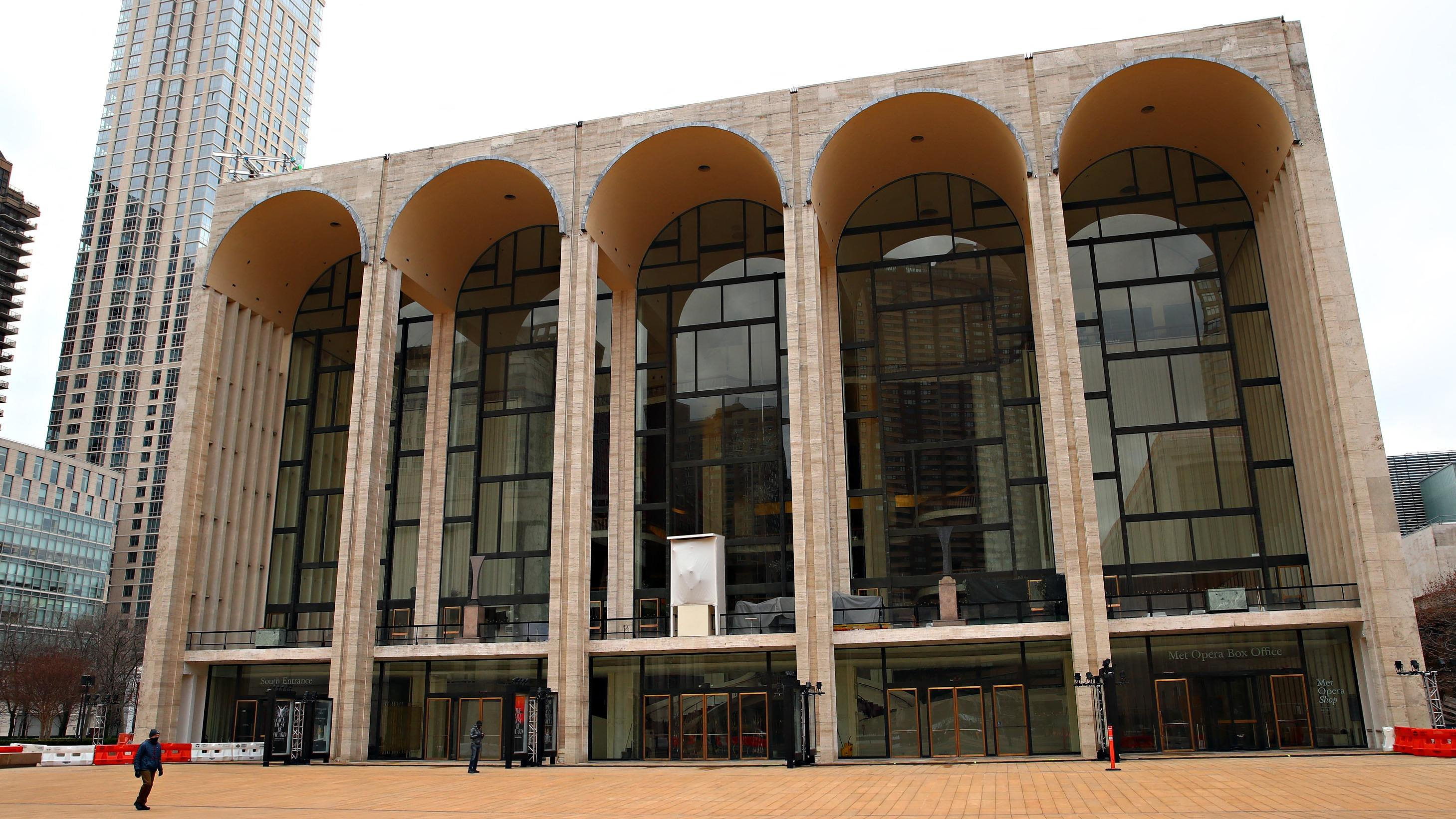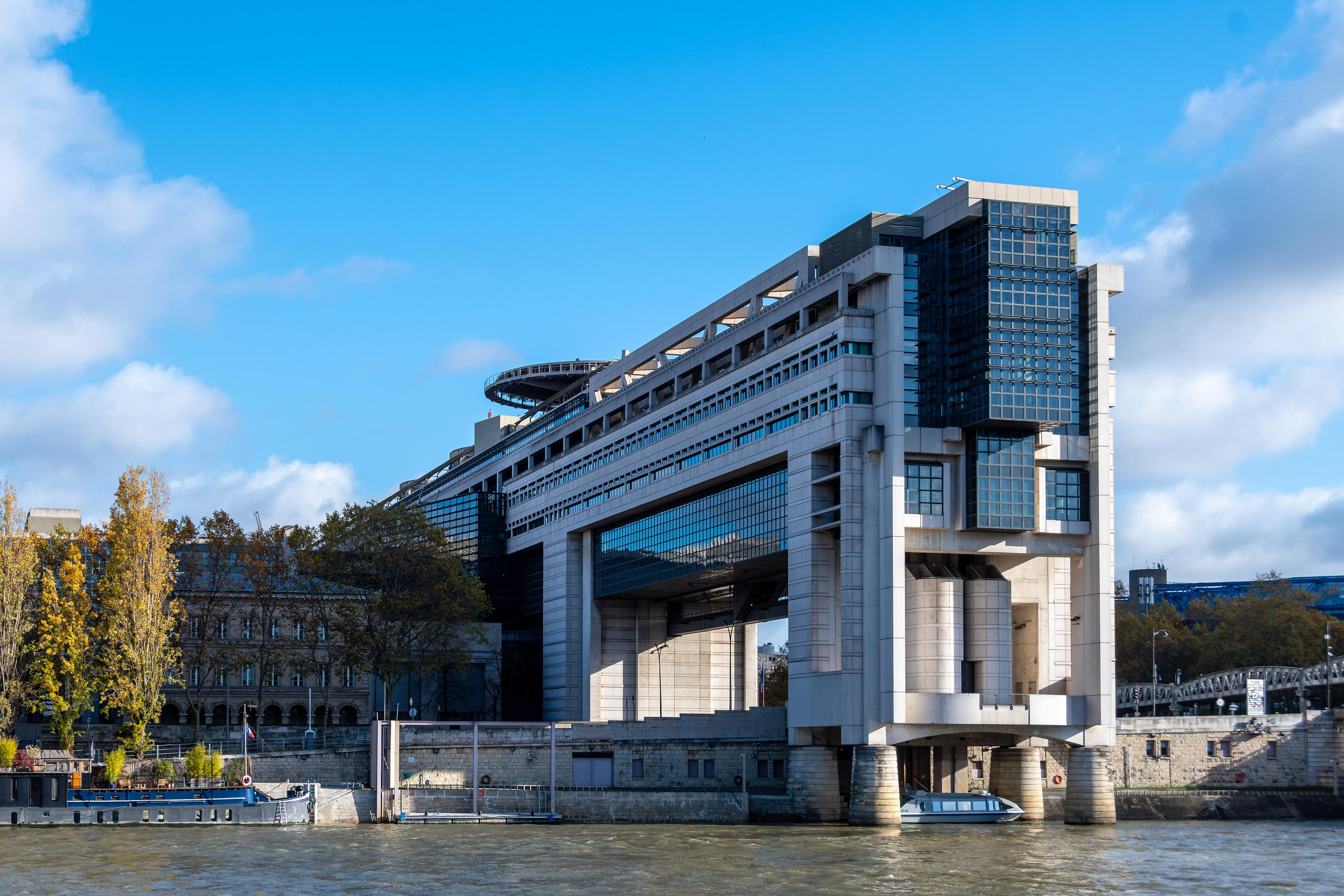Turandot, “exciting but problematic masterpiece,” according to the Metropolitan Opera. Until June 7, the great New York theater is showing Giacomo Puccini's latest masterpiece. The unfinished opera tells the story of the impossible loves of a Tartar prince and the Emperor's daughter. Everything takes place in a fantasy medieval China. Since its creation in 1926, a few months after the death of its composer, the work has been among the best known of the 20th century and among the most appreciated. Nessun dorma, Prince Calaf's great aria, quickly became a hit, a must for all tenors.
But almost a hundred years after its creation, the perception of this work is evolving, as a program note for spectators explains. “If Turandot can be considered “the last great Italian opera”, this designation does not take into account the fact that a large part of the work is not Italian, believes Christopher Browner, editor-in-chief of the publications of the Metropolitan Opera. From its setting to its plot and, above all, much of its music, Turandot takes inspiration from other cultures (...) Yet it is in no way authentically Chinese either. A Western projection of the Orient, it is full of contradictions, distortions and racial stereotypes.
Among the “distortions and stereotypes” noted by the Met, the names of certain characters, from Princess Liù to Ministers Ping, Pang and Pong, the reuse of traditional melodies re-orchestrated in the Western way.
According to Christopher Browner, "it should therefore come as no surprise that many viewers of Chinese descent find it difficult to watch as their own heritage is co-opted, fetishized, or portrayed as savage, bloodthirsty, or backward." How can we appreciate Turandot, a “fascinating but problematic masterpiece” under these conditions? “As we raise our collective awareness of its flaws, it is essential, rather than shy away from the less attractive aspects of the opera, that in each subsequent revival the audience recognizes and grapples with their implications,” recommends the Met.
This light on Puccini's work echoes a controversy in England a few months ago. The Royal Opera House in London was forced to change the staging of Madame Butterfly, in 2022, to make it "more in tune with the historical context of the story" which takes place in Nagasaki, Japan. beginning of the 20th century. At the time, Olivier Mears, director of the Royal Opera House, emphasized that the opera, while being a "masterpiece" was also "a product of its time", which required some adaptations to be "faithful in the spirit of the original and authentic in its representation of Japan.

 Israel-Hamas war: Gaza between hope of truce and fear of Israeli offensive in the South
Israel-Hamas war: Gaza between hope of truce and fear of Israeli offensive in the South “Mom, Dad, please don’t die”: in the United States, a nine-year-old child saves the lives of his parents injured in a tornado
“Mom, Dad, please don’t die”: in the United States, a nine-year-old child saves the lives of his parents injured in a tornado War in Ukraine: Putin orders nuclear exercises in response to Macron and “Western leaders”
War in Ukraine: Putin orders nuclear exercises in response to Macron and “Western leaders” Mexico: the last moments of surfers found in a well, killed with a bullet to the head
Mexico: the last moments of surfers found in a well, killed with a bullet to the head A baby whose mother smoked during pregnancy will age more quickly
A baby whose mother smoked during pregnancy will age more quickly The euro zone economy grows in April at its best pace in almost a year but inflationary pressure increases
The euro zone economy grows in April at its best pace in almost a year but inflationary pressure increases Children born thanks to PMA do not have more cancers than others
Children born thanks to PMA do not have more cancers than others Breast cancer: less than one in two French women follow screening recommendations
Breast cancer: less than one in two French women follow screening recommendations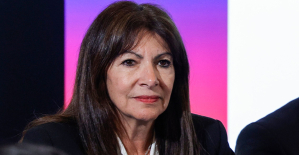 “A potential environmental disaster”: Paris town hall opposes an oil drilling project in Seine-et-Marne
“A potential environmental disaster”: Paris town hall opposes an oil drilling project in Seine-et-Marne The governor of the Banque de France pleads for the development of French and European AI
The governor of the Banque de France pleads for the development of French and European AI Clariane (ex-Korian) announces a sale of its home hospitalization activities
Clariane (ex-Korian) announces a sale of its home hospitalization activities To everyone's surprise, the Hades 2 event video game is released in early access
To everyone's surprise, the Hades 2 event video game is released in early access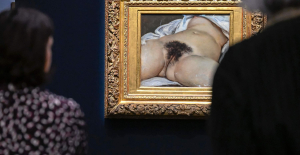 The Origin of the World, exhibited at the Center Pompidou Metz, target of an “artistic performance”
The Origin of the World, exhibited at the Center Pompidou Metz, target of an “artistic performance”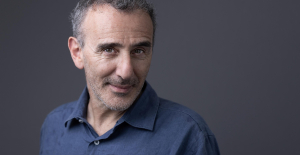 Threatened with death for having insulted the mobilized pro-Palestinian students, Élie Semoun files a complaint
Threatened with death for having insulted the mobilized pro-Palestinian students, Élie Semoun files a complaint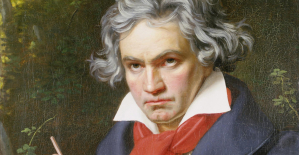 Vienna, Paris, Milan celebrate the 200th anniversary of Beethoven's 9th Symphony
Vienna, Paris, Milan celebrate the 200th anniversary of Beethoven's 9th Symphony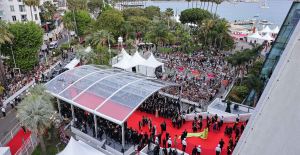 Cannes Film Festival: call for strike one week before opening
Cannes Film Festival: call for strike one week before opening Omoda 7, another Chinese car that could be manufactured in Spain
Omoda 7, another Chinese car that could be manufactured in Spain BYD chooses CA Auto Bank as financial partner in Spain
BYD chooses CA Auto Bank as financial partner in Spain Tesla and Baidu sign key agreement to boost development of autonomous driving
Tesla and Baidu sign key agreement to boost development of autonomous driving Skoda Kodiaq 2024: a 'beast' plug-in hybrid SUV
Skoda Kodiaq 2024: a 'beast' plug-in hybrid SUV The home mortgage firm rises 3.8% in February and the average interest moderates to 3.33%
The home mortgage firm rises 3.8% in February and the average interest moderates to 3.33% This is how housing prices have changed in Spain in the last decade
This is how housing prices have changed in Spain in the last decade The home mortgage firm drops 10% in January and interest soars to 3.46%
The home mortgage firm drops 10% in January and interest soars to 3.46% The jewel of the Rocío de Nagüeles urbanization: a dream villa in Marbella
The jewel of the Rocío de Nagüeles urbanization: a dream villa in Marbella Europeans: David Lisnard expresses his “essential and vital” support for François-Xavier Bellamy
Europeans: David Lisnard expresses his “essential and vital” support for François-Xavier Bellamy Facing Jordan Bardella, the popularity match turns to Gabriel Attal’s advantage
Facing Jordan Bardella, the popularity match turns to Gabriel Attal’s advantage Europeans: a senior official on the National Rally list
Europeans: a senior official on the National Rally list Blockade of Sciences Po: the right denounces a “drift”, the government charges the rebels
Blockade of Sciences Po: the right denounces a “drift”, the government charges the rebels These French cities that will boycott the World Cup in Qatar
These French cities that will boycott the World Cup in Qatar Foot: Italian football protests against a government project which aims to monitor club finances
Foot: Italian football protests against a government project which aims to monitor club finances Champions League: “We are ready for anything,” warns Edin Terzic before PSG-Dortmund
Champions League: “We are ready for anything,” warns Edin Terzic before PSG-Dortmund Premier League: David Moyes to leave West Ham at end of season
Premier League: David Moyes to leave West Ham at end of season Transat CIC: Yoann Richomme winner in the wake of Tabarly, Poupon, Peyron, Desjoyeaux...
Transat CIC: Yoann Richomme winner in the wake of Tabarly, Poupon, Peyron, Desjoyeaux...